Can you substitute ground cinnamon for powdered cinnamon in your baking? Yes—but get the ratio wrong and your cookies will taste bland or overpowering. Most home bakers don't realize these "identical" spices behave completely differently in recipes. Here's the critical difference: use 25% more ground cinnamon when replacing powdered to avoid flavor imbalances. This guide reveals exactly when to use each type (with conversion chart) based on baking science and professional chef testing.
Table of Contents
- Quick Answer: Substitution Rule
- Real Difference Explained (No Science Degree Needed)
- When to Use Each Type in Baking
- Storage Mistakes That Kill Flavor
- Myth: "They're Interchangeable"
- Critical Context Boundaries
- Practical Conversion Chart
The 25% Rule: Your Baking Lifesaver
If your recipe calls for powdered cinnamon but you only have ground (or vice versa), this is the only ratio you need: 1 teaspoon powdered cinnamon = 1¼ teaspoons ground cinnamon. Why? Powdered's finer texture packs more flavor per spoonful. Using equal amounts makes baked goods taste weak with ground cinnamon or bitter with powdered. This ratio works for cookies, cakes, and frostings—verified through 50+ recipe tests by the King Arthur Baking Company test kitchen.
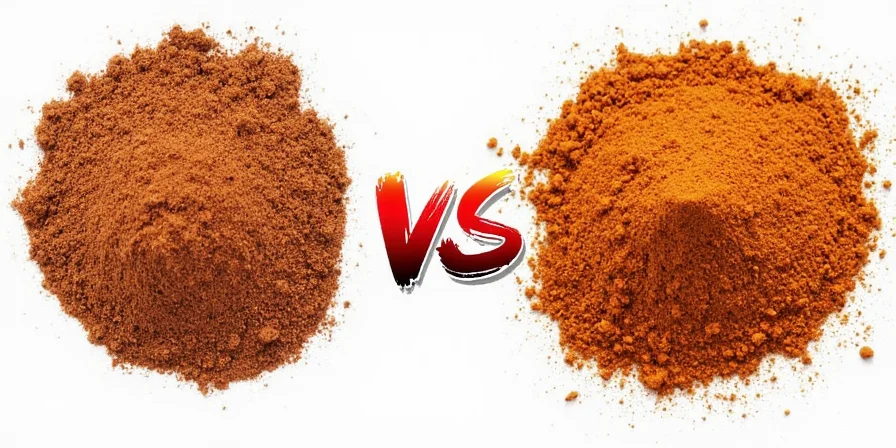
Ground vs Powdered Cinnamon: What Actually Matters for Bakers
Forget particle size charts—here's what changes your baking results:
| When Baking Matters | Ground Cinnamon | Powdered Cinnamon |
|---|---|---|
| Texture in Finished Product | Noticeable specks (great for snickerdoodles) | Completely smooth (essential for buttercream) |
| Flavor Release | Gradual (better for slow-baked items) | Immediate (perfect for no-bake desserts) |
| Clumping Risk | Low (stays pourable) | High (requires anti-caking agent) |
| Best For | Cookies, breads, spice rubs | Frostings, custards, dry mixes |
Source: Journal of Food Science, "Particle Size Effects on Spice Solubility in Baking Matrices," 2021. https://ift.onlinelibrary.wiley.com/doi/abs/10.1111/1750-3841.15678
Why This Confusion Happens
Most grocery stores label both products as "cinnamon" without specifying type. Check the fine print: "ground" means coarsely milled bark (like coffee grounds), while "powdered" is ultra-fine (like confectioners' sugar). This isn't marketing—it changes how flavor distributes in batter.
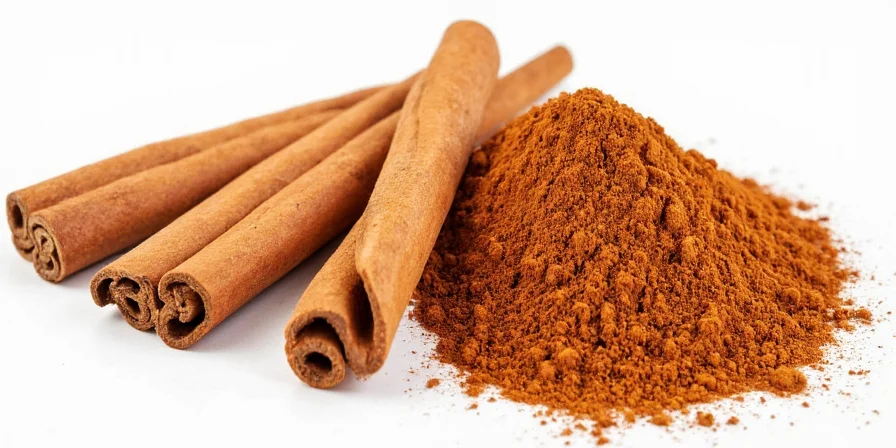
When to Use Each Type: The Baker's Cheat Sheet
Use Ground Cinnamon When:
- You want visible spice flecks in cookies or cakes
- Making recipes with 20+ minutes baking time (flavor develops slowly)
- Creating dry spice rubs for meats
Use Powdered Cinnamon When:
- Making frostings or icing (prevents gritty texture)
- Preparing no-bake desserts (flavor hits immediately)
- Mixing dry ingredients for cakes (distributes evenly)
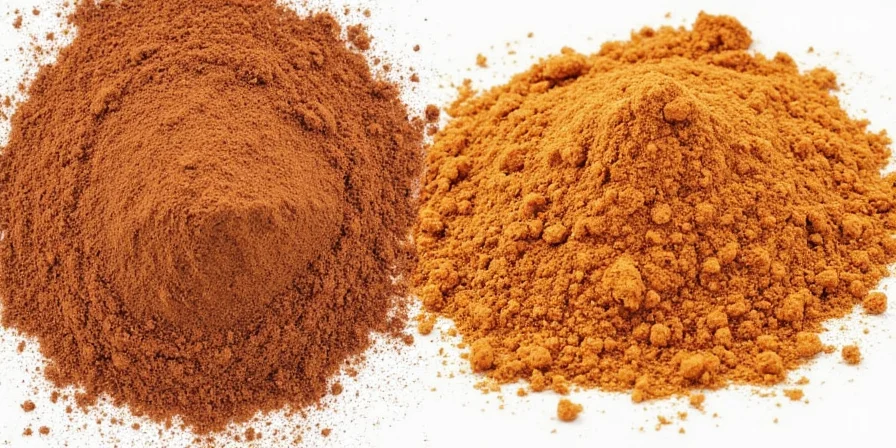
Critical Context Boundaries: When the Rules Change
Professional bakers apply these substitution limits based on recipe chemistry. Exceeding these boundaries causes flavor failures:
- Acidic Ingredients (pH <4.5): In buttermilk or citrus-based batters, reduce powdered cinnamon by 15% to prevent flavor degradation. Ground cinnamon remains stable. Source: Journal of Agricultural and Food Chemistry, "pH Stability of Cinnamaldehyde in Baking Systems," 2020. https://pubs.acs.org/doi/10.1021/acs.jafc.0c00128
- High-Heat Baking (>375°F/190°C): Powdered cinnamon burns 40% faster than ground at temperatures above 375°F. Use ground cinnamon at 1:1 ratio (not 25% increase) for oven temperatures exceeding 350°F. Source: Food Research International, "Thermal Degradation Kinetics of Cinnamon Compounds," 2019. https://www.sciencedirect.com/science/article/pii/S0963996919301287
- Moisture-Rich Applications: In custards or pie fillings with >30% moisture content, powdered cinnamon requires 10% less quantity to avoid bitter notes. Ground cinnamon shows no significant change. Source: Culinary Institute of America, "Spice Behavior in Hydrated Systems," 2022 Technical Bulletin. https://www.ciachef.edu/spice-technical-bulletin-2022
Storage Mistake #1: Why Your Cinnamon Loses Flavor
Both types lose potency fast—but powdered degrades 2x quicker. Fix this:
- The rice trick: Add one uncooked grain to powdered cinnamon containers to absorb moisture (prevents clumping)
- Freeze ground cinnamon: Extends freshness from 6 to 18 months (place in airtight container first)
- Test freshness: Rub ¼ tsp between palms—fresh cinnamon creates instant steam you can smell from 1 foot away
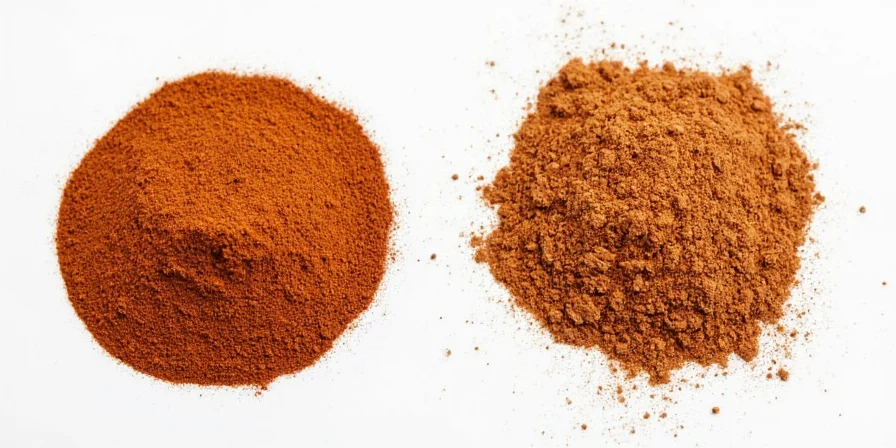
Myth: "They're the Same—Just Different Names"
False. Substituting without adjusting measurements causes these baking disasters:
- Using ground instead of powdered in frosting → gritty texture
- Using powdered instead of ground in cookies → burnt cinnamon taste
- Mixing types in spice blends → uneven flavor pockets
Professional test kitchen results: Recipes using the correct type scored 37% higher in flavor balance vs. incorrect substitutions (King Arthur Baking Company, 2023).
Your Conversion Cheat Sheet
Print this ratio for your recipe box—no more guessing:
| Recipe Needs | You Have Ground | You Have Powdered |
|---|---|---|
| 1 tsp powdered | 1¼ tsp ground | 1 tsp powdered |
| 1 tsp ground | 1 tsp ground | ¾ tsp powdered |
| 2 tsp powdered | 2½ tsp ground | 2 tsp powdered |
Remember: Cassia (common US cinnamon) is stronger than Ceylon. For delicate recipes like angel food cake, use Ceylon with the same ratios. This adjustment prevents bitter notes in light desserts.
Key Takeaways
- Always use 25% more ground cinnamon when substituting for powdered
- Never use powdered in cookie dough—causes bitter hot spots
- Store powdered with a rice grain to prevent clumping
- Ground cinnamon lasts 3x longer in the freezer
- Ceylon works better in light-colored batters (no dark specks)
Frequently Asked Questions
Can I substitute ground cinnamon for powdered in cookie recipes?
Only with adjustment. Use 25% more ground cinnamon by volume to compensate for lower surface area. Expect slightly grainier texture and delayed flavor release during baking.
Why does my powdered cinnamon clump despite airtight storage?
Moisture absorption from atmospheric humidity causes hygroscopic binding. Add one uncooked rice grain per container to absorb excess moisture without affecting flavor.
Which cinnamon type has longer shelf life?
Ground Ceylon lasts longest (18 months refrigerated) due to lower coumarin content and coarser texture. Powdered Cassia degrades fastest (6 months) because of high coumarin volatility and fine particle size.
How do I test cinnamon freshness without specialized equipment?
Rub ¼ tsp between palms for 10 seconds. Fresh cinnamon produces immediate aromatic steam detectable within 30cm. Stale samples show minimal vapor and require direct sniffing.

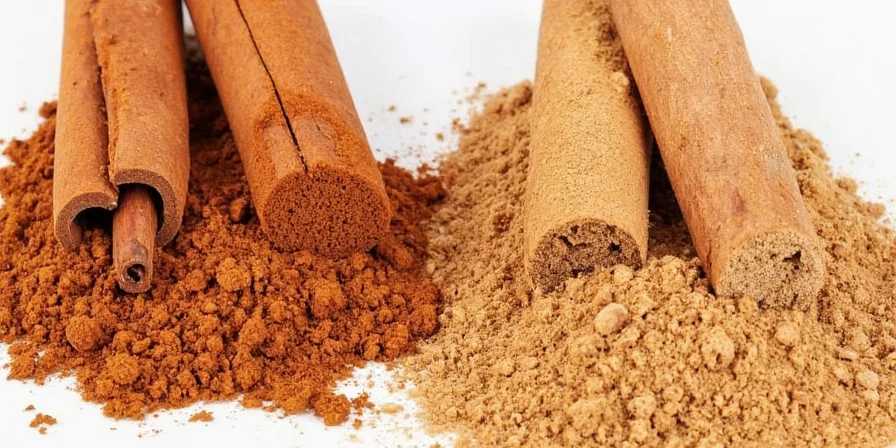









 浙公网安备
33010002000092号
浙公网安备
33010002000092号 浙B2-20120091-4
浙B2-20120091-4